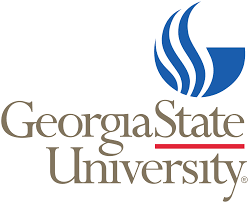Introduction
Georgia is home to respected universities offering strong MPP programs, where students can connect with experienced professors and motivated classmates. Atlanta, the state’s capital, is a major center for government, nonprofits, and businesses, providing many options for internships, networking, and hands-on learning.
An MPP degree is different from other master’s programs, like a Master of Public Administration (MPA) or an MBA, because it focuses on analyzing and designing public policies. While MPAs are centered on managing public organizations, MPPs are more about understanding and solving public issues using research and data.
Key State Takeaways:
- Total MPP Programs Statewide: 4
- NASPAA-Accredited Programs: 2
- Annual Resident Tuition Average: $9,800 (PYR)
- Annual Non-Resident Tuition Average: $26,400 (PYR)
- Program Formats Offered: On-campus
- Average Starting Salary: $62,000
NASPAA-Accredited MPP Programs in Georgia
For students, attending a NASPAA-accredited program means their degree will be recognized and respected by employers. Many government and nonprofit organizations prefer to hire graduates from accredited programs because it shows they have received thorough and effective training. Choosing a NASPAA-accredited MPP program in Georgia gives students confidence that their education meets professional standards. There are two NASPAA-accredited MPP programs in Georgia:
Georgia State University
- Atlanta, GA.
- 39 Credit Hours
- Campus
Program:
Masters of Public Policy (MPP)
Program Overview:
Georgia State University’s Master of Public Policy (MPP), offered by the Andrew Young School of Policy Studies (AYSPS) in downtown Atlanta, is designed to prepare graduates for analytical and leadership roles across government, nonprofit and private sectors. The program emphasizes skills in evidence-based policy making, evaluation, public finance and disaster policy.
Located in a major metropolitan policy ecosystem, the program leverages its proximity to state government, nonprofits and urban policy environments. Courses are scheduled primarily in the evening (once per week), making it feasible for working professionals to participate while pursuing this advanced degree.
Unique Components:
- Evening-only schedule for working professionals. All courses are scheduled in the evening, typically one night per week (4:30-7 p.m. or 7:15-9:45 p.m.), enabling students to remain employed full-time.
- Interdisciplinary curriculum bridging policy, management and economics. The MPP curriculum draws on AYSPS’s strengths in urban policy, public budgeting and program evaluation—integrating policy analysis, public management and economics.
- Joint degree option with J.D. Students have the option to pursue a combined MPP/Juris Doctor degree in partnership with GSU’s College of Law, enabling dual preparation in policy and law.
Key Data Highlights:
- Format: On-campus
- Accreditation: NASPAA
- Credit Hours: 39
- GRE: Not required
- Resident Tuition: $13,110 (PYR)
- Non-Resident Tuition: $35,680 (PYR)
- Acceptance Rate: 61%
- Enrollment: 497 students
Other Considerations:
- Strong urban-policy orientation and national rankings. AYSPS is ranked among the top 20 graduate public affairs programs nationally and among the top 10 for public finance & budgeting, urban policy, and nonprofit management.
- Established policy research and practitioner network in metro Atlanta. The program is embedded in a large metropolitan policy environment with strong connections to government, nonprofits and think tanks—offering internship and applied-policy opportunities to students.
University of Georgia
- Athens, GA.
- 41 Credit Hours
- Campus
Program:
Masters of Public Policy (MPP)
Program Overview:
UGA’s programs in public administration and policy are housed in the School of Public & International Affairs (SPIA). The MPA degree emphasises management, policy analysis, and public service careers across government and nonprofit sectors, and thus serves a similar role to many MPP programs.
SPIA is ranked among the top graduate public-affairs programs in the U.S., offering a strong location in Athens, Georgia, and access to Georgia’s state and local policy ecosystem. This environment allows students to engage in applied policy-relevant research and real–world public service.
Unique Components:
- Rigorous curriculum blending policy analysis and administration. The MPA program includes a 41-credit requirement composed of core public management courses, a research-methods sequence, electives, and for students without prior experience, an internship.
- Evening coursework availability and multiple campus locations. The program offers evening courses and is available on UGA’s main campus in Athens as well as its Gwinnett campus.
- Strong faculty and ranking reputation. SPIA is described as “#7” or among the top ten public affairs graduate programs by U.S. News and in other independent sources, giving students access to a highly regarded institutional brand.
Key Data Highlights:
- Format: On-campus
- Accreditation: NASPAA
- Credit Hours: 41
- GRE: Required
- Resident Tuition: $10,268 (PYR)
- Non-Resident Tuition: $26,576 (PYR)
- Acceptance Rate: N/A
- Enrollment: 65-70 students
Other Considerations:
- Applied focus through internship and capstone portfolio. For those without prior public-service work, the program requires a 300-hour internship, a capstone/applied portfolio, and coursework in quantitative methods to ground students in analytic and real-world policy skills.
Non-Accredited Schools
Many non-accredited MPP programs in Georgia are housed within respected universities, offer strong faculty expertise, and provide rigorous training in policy analysis, economics, and governance. These programs often emphasize practical experience through internships and partnerships with state agencies, think tanks, and nonprofits—key opportunities in a state with a dynamic policy landscape centered in Atlanta:
| Institution | Location | Accreditation | Credit Hours | Modality |
|---|---|---|---|---|
| Georgia Institute of Technology | Atlanta, GA | SACSCOC | 46 | On-Campus |
| Kennesaw State University | Kennesaw, GA | SACSCOC | 30 | Online/On- Campus |
Career Outlook
Graduates can work for local, state, or federal government agencies, nonprofit organizations, or private companies. For example, they might develop affordable housing programs, create plans to improve public health, or analyze budgets to make government spending more efficient. The demand for people who can use data to solve complex issues means MPP graduates have many options for meaningful and impactful careers. Here are some jobs unique to Georgia that MPP graduates might pursue, keeping in mind the state’s economic, cultural, and political landscape:
Public Sector Opportunities:
- Policy Analyst at the Georgia General Assembly: Support lawmakers by conducting policy research and analyzing proposed legislation. Their responsibilities include studying proposed legislation, forecasting its potential social, economic, and fiscal impacts, and drafting concise reports to guide decision-making. Analysts often engage with stakeholders, attend committee meetings, and recommend policy modifications to ensure alignment with state priorities.
- Program Manager at the Georgia Department of Community Affairs: Oversee programs related to housing, community development, and rural economic initiatives. They manage budgets, ensure compliance with state and federal regulations, and work with local governments to implement community-focused programs.
- Transportation Planner at the Georgia Department of Transportation (GDOT): Develop policies and plans for Georgia’s infrastructure and transportation systems. Planners collaborate with engineers, local governments, and community stakeholders to ensure infrastructure improvements align with public needs and safety standards, while promoting sustainable development.
Nonprofit Sector Opportunities:
- Nonprofit Program Director at Atlanta Community Food Bank: Design and implement policies to reduce food insecurity across Georgia. They design innovative programs to increase food access, such as mobile food distribution or community kitchen partnerships. Directors also oversee teams, manage budgets, and measure the impact of their programs.
- Environmental Policy Specialist at Chattahoochee Riverkeeper: Develop and advocate for policies to protect Georgia’s water resources. These specialists also engage with the public and policymakers to raise awareness of environmental challenges, such as pollution or water scarcity, and promote sustainable solutions.
- Education Policy Advocate with Georgia Partnership for Excellence in Education: Analyze and promote initiatives to improve K-12 education. They present findings to state legislators, school boards, and the public to drive systemic improvements, ensuring all students in Georgia have access to quality education.
- Social Justice Policy Advisor at the Southern Center for Human Rights: Address policies related to criminal justice reform and civil rights. Advisors analyze data, draft policy proposals, and collaborate with advocacy groups and lawmakers to advance reforms.
Frequently Asked Questions (FAQ)
Q: Why should I consider studying public policy in Georgia?
A: Georgia’s rapidly growing economy, diverse population, and strong state government make it an ideal setting to study public policy. Atlanta serves as a hub for state agencies, advocacy organizations, and national nonprofits, offering MPP students a wealth of internship and networking opportunities. The state’s policy landscape spans urban planning, education reform, transportation, and environmental management, allowing students to specialize in areas of growing impact.
Q: What is the difference between an MPP and an MPA in Georgia?
A: The MPP (Master of Public Policy) emphasizes research, quantitative analysis, and program evaluation, ideal for students interested in designing and assessing policies. The MPA (Master of Public Administration), by contrast, focuses on leadership, budgeting, and management within government and nonprofit organizations. In short, MPP programs train analysts; MPA programs train managers.
Q: What skills and coursework can I expect in a Georgia MPP program?
A: Students develop advanced skills in data analysis, policy research, communication, and ethics. Coursework typically includes public economics, statistics, research design, and policy evaluation. At the University of Georgia, students also complete applied projects through the Carl Vinson Institute of Government, where they tackle real policy issues affecting Georgia communities.
Q: What kinds of careers do MPP graduates in Georgia pursue?
A: MPP graduates often work as policy analysts, legislative researchers, consultants, or nonprofit program directors. Many find positions in Atlanta with the Georgia General Assembly, Governor’s Office of Planning and Budget, or regional planning commissions. Others enter think tanks, advocacy organizations, and consulting firms that focus on education, transportation, or economic development policy.
Q: Are there flexible or online options for MPP students in Georgia?
A: Most full MPP programs in Georgia are offered in person, particularly at the University of Georgia. However, related public administration and public affairs programs at Georgia State and Kennesaw State include online and hybrid options for working professionals seeking policy-oriented training.
Q: What is it like living and studying in Georgia as a graduate student?
A: Georgia offers an appealing mix of professional and personal opportunities. Atlanta’s urban core provides access to major employers, while Athens—home to UGA—offers a vibrant college-town atmosphere. Students enjoy Georgia’s rich cultural scene, mild winters, and affordability compared to other major metro regions. The state’s mix of urban and rural settings also makes it an excellent place to study how policy decisions affect diverse communities.



